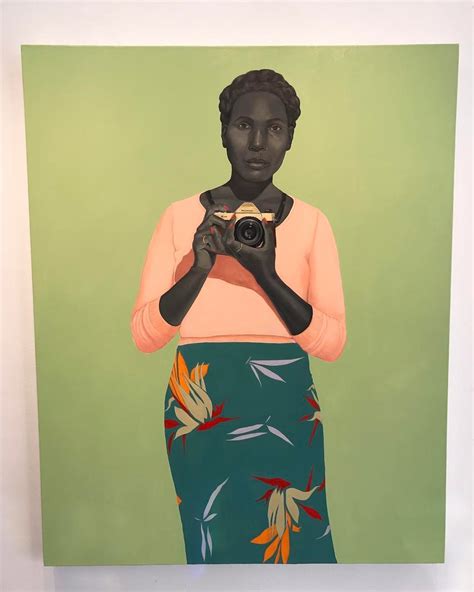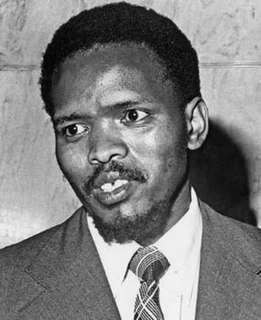A Quote by Amy Sherald
When I found photography, I found this other kind of portraiture of black families and black people who were photographing themselves or having themselves photographed in ways they wanted to be seen.
Related Quotes
I've never seen a sincere white man, not when it comes to helping black people. Usually things like this are done by white people to benefit themselves. The white man's primary interest is not to elevate the thinking of black people, or to waken black people, or white people either. The white man is interested in the black man only to the extent that the black man is of use to him. The white man's interest is to make money, to exploit.
I wanted to make sure the focus [in The Land] was on human beings themselves and their decisions, but still connected to the urban environment that people associate as being black. I think I was able to make a film without commenting on "black this or black that" and you still feel the presence of it. There's no one character who's saying "we're all black and we're all in this struggle." It's that you just feel it. Some of that is because we get the sense from a lot of independent films that black people struggle all the time.
I think that the Vietnam War era is important because we tend not to want to revisit it. For black people, there was the temptation of disaffection. People looked for alternative ways to express themselves personally and politically, people doubted the system, and there was the terrible kind of division in black America between a radical leadership and a much older, compromising leadership.
Black males who refuse categorization are rare, for the price of visibility in the contemporary world of white supremacy is that black identity be defined in relation to the stereotype whether by embodying it or seeking to be other than it…Negative stereotypes about the nature of black masculinity continue to overdetermine the identities black males are allowed to fashion for themselves.
The strange thing about my life is that I came to America at about the time when racial attitudes were changing. This was a big help to me. Also, the people who were most cruel to me when I first came to America were black Americans. They made absolute fun of the way I talked, the way I dressed. I couldn't dance. The people who were most kind and loving to me were white people. So what can one make of that? Perhaps it was a coincidence that all the people who found me strange were black and all the people who didn't were white.
Adults who loved and knew me, on many occasions sat me down and told me that I was black. As you could imagine, this had a profound impact on me and soon became my truth. Every friend I had was black; my girlfriends were black. I was seen as black, treated as black, and endured constant overt racism as a young black teenager.
The leading distinction in magnets is the sex, male and female, and the next great difference in them is the colour. Those of Magnesia, bordering on Macedonia, are of a reddish black; those of Breotia are more red than black; and the kind that is found in Troas is black, of the female sex, and consequently destitute of attractive power.








































